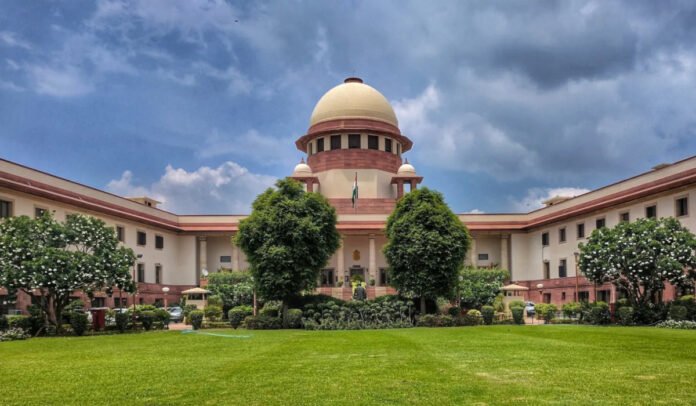Governor Assent to Bills
NEW DELHI: The Supreme Court has delivered a significant constitutional ruling, holding that courts cannot impose fixed timelines on governors or the President for granting assent to bills passed by state legislatures. The judgment, pronounced in response to a presidential reference seeking clarity on several aspects of gubernatorial discretion, firmly rejects the idea that constitutional courts may mandate deadlines or introduce the concept of automatic or “deemed assent.”
A five-judge Constitution Bench, led by Chief Justice B. R. Gavai and comprising Justices Surya Kant, Vikram Nath, P. S. Narasimha and A. S. Chandurkar, stated that prescribing a rigid timeline for assent would violate the doctrine of separation of powers and amount to judicial overreach into an area exclusively entrusted to the executive under the Constitution.
The presidential reference had raised several questions relating to the powers of constitutional authorities with respect to legislative assent. Among the most crucial was whether courts may compel the governor or the President to act within a specified period. The Bench clarified that while constitutional authorities are expected to act within a “reasonable time,” the judiciary cannot define that time through mandatory directions.
The Court observed that the Constitution outlines four options for a governor under Article 200 — to grant assent, withhold assent, send the bill for reconsideration or reserve it for the President. The choice among these options, the judges said, is part of the governor’s constitutional discretion, and the judiciary cannot limit or time-bound that discretion.
In its reasoning, the Bench stressed that the constitutional framework seeks a balance between state legislatures and the Union, and deadlines imposed by courts would disturb that balance. The justices remarked that “dialogue, not deadlines” must frame the relationship between constitutional authorities when dealing with pending legislation.
However, the Court also clarified that the absence of fixed timelines does not imply license for indefinite inaction. Governors, it said, are duty-bound to act with reasonable promptness, and inexplicable delays may still face judicial scrutiny on a case-specific basis. The judgment emphasized that constitutional functionaries must uphold the spirit of responsible governance, which includes timely decision-making.
The ruling is expected to have significant consequences for several states that have recently clashed with governors over delayed assent to key bills. States such as Tamil Nadu, Kerala, Telangana and Punjab have repeatedly complained that governors were stalling legislation by keeping bills pending for months. With the Supreme Court now ruling out mandatory deadlines, state governments may need to rely more heavily on political engagement and administrative coordination instead of judicial compulsion.
Constitutional law analysts noted that the verdict reinforces federal balance by preventing courts from stepping into the legislative-executive interface. At the same time, they cautioned that governors must avoid using the absence of a judicially defined timeline to indefinitely freeze legislative processes.
The decision also dismissed the concept of “deemed assent,” under which a bill could automatically become law if no action was taken for a certain period. The Court found no such mechanism in the constitutional scheme and held that creating one would amount to rewriting the Constitution.
While delivering its opinion, the Bench made it clear that it was answering only the issues raised in the presidential reference, and not reopening previous rulings involving specific states. It added that earlier judgments holding that governors cannot indefinitely delay bills continue to remain good law, as long as courts do not attempt to convert the requirement of “reasonable time” into a fixed numerical duration.
Reactions to the judgment were mixed. Some state leaders expressed disappointment that the Court did not provide stronger safeguards against legislative paralysis. Others welcomed the emphasis on constitutional dialogue and the reaffirmation of the governor’s discretionary space. Experts largely agreed that the ruling strengthens institutional propriety while urging all stakeholders to act in good faith.
The ruling is likely to shape Centre-State relations, legislative procedures and gubernatorial conduct across India in the coming years. By refusing to introduce strict judicial timelines, the Supreme Court has sought to preserve constitutional balance while reiterating the necessity for responsible and timely action by constitutional authorities.






















